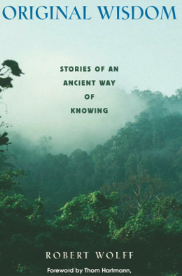The officer got mad, kept talking, "enemy, enemy," and "we cannot trust them, they are the enemy."
At some point the young man said, Killing is obscene.
Then the lieutenant really blew his top, "F..ing is obscene," he had yelled.
The Army sent him back to Hawaii for a Court Martial.
That young man crossed the abyss, he found his true self. And the anecdote illustrates how difficult it is to cross the abyss in our society: the consequences test one's resolve.
~ ~ ~
Recently came across this story: in parts of Australia wild camels have become strangely destructive, attacking homesteads, even small towns. The article said it was "because of the drought."
Camels were brought to Australia long ago, to do what they do so well in other desert areas. They have the ability to store water so that they can go long distances, even with a burden, across a desert. Today, trucks, cars, and trains are more efficient perhaps, and have replaced the camel. But camels survived in the wild. Now at least some of them are getting wild in another sense of the word.
Hmm, camels going crazy because of a drought? Aren't they desert animals? Or, perhaps, severe stresses make them behave un-camel-lke.
Then read a story about elephants, in Africa as well as in Asia, going crazy. Bands of elephants on a rampage, destroying gardens, trampling fences, houses, even people. Obviously not family groups, but a rag tag group of young elephants. That is not like elephant behavior!
The article gave this explanation: poachers have killed so many adult elephants for their ivory, that young elephants (who have not grown big tusks yet) are left to fend for themselves. They grow up without mothers and fathers.
I like elephants. I grew up around elephants (we had a neighbor, who had five, sometimes six, elephants that he would lead through our back yard to the river). I have read much that has been learned about elephants in the last century. They live in family groups, sometimes large, led by the alpha female and her relatives or adopted family. Male members of the family are the protectors. Elephants touch each other almost continuously. Males and females face each other, touch heads. Looking into each others' eyes perhaps. I have seen elephants walk through the jungle almost without sound; elephants can have a very soft footprint. Baby elephants are playful, as all children are, but their mothers watch, and punish when they get too rough. Elephant trunks are an amazing piece of anatomy, it is nose and hand at the end of one very muscular and flexible long arm.
The kind of behavior shown by bands (one article referred to gangs) of elephants who obviously were not family, is very unelephantlike. Strange, also, that it occurs in Asia as well as in Africa (different kinds of elephants).
ASIDE. This morning a friend sent me a short, amateur movie of an elephant birth: http://tinyurl.com/2x5qz5 He accompanied the link with "not for the squeamish." I'm not sure why. It's a birth, like all others, one of the great miracles of Life.
(Note: You can view every article as one long page if you sign up as an Advocate Member, or higher).





